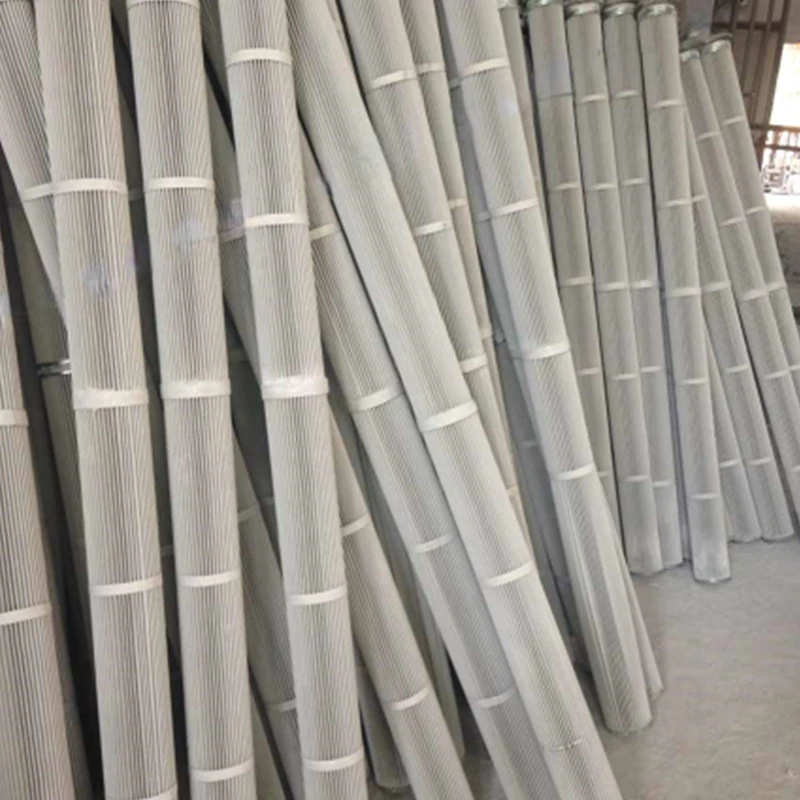 Tel:
+8615930870079
Tel:
+8615930870079
Dez . 28, 2024 16:00 Back to list
fine cartridge filter for dust extractor
Fine Cartridge Filter for Dust Extractor Essential for Clean Air and Efficient Operations
In industrial environments, dust extraction is crucial for maintaining air quality, ensuring worker safety, and enhancing overall operational efficiency. One of the key components in dust extraction systems is the fine cartridge filter. This article will explore the functions, benefits, and considerations surrounding fine cartridge filters, particularly in dust extraction applications.
What is a Fine Cartridge Filter?
A fine cartridge filter is a cylindrical filtration element designed to capture particulate matter from the air, typically in dust extraction systems. Made from high-efficiency materials, these filters can trap a wide range of particle sizes, from larger debris to fine dust particles that can pose health risks. The design of cartridge filters allows for a large surface area, promoting effective air filtration while maintaining low resistance to airflow.
Importance of Dust Extraction
In industries such as woodworking, metalworking, pharmaceuticals, and food processing, dust and particulate matter can accumulate quickly, leading to several issues. Primarily, airborne dust can pose significant health risks to workers, including respiratory problems and allergic reactions. Moreover, excess dust can lead to equipment wear and tear, increased cleaning demands, and even fire hazards in some environments. Therefore, effective dust extraction is not just beneficial; it is essential for compliance with workplace safety regulations.
Benefits of Fine Cartridge Filters
1. High Filtration Efficiency Fine cartridge filters offer superior dust capture capabilities. They can effectively filter out particles as small as 1 micron or even smaller, making them ideal for environments with fine, hazardous dust.
2. Low Pressure Drop These filters are designed to minimize airflow resistance, ensuring that dust extraction systems operate efficiently. Low pressure drop translates to lower energy consumption, which can significantly reduce operational costs over time.
3. Long Service Life Due to their robust construction and efficient dust capture capabilities, fine cartridge filters generally have a longer service life compared to traditional bag filters. They require less frequent replacements, contributing to lower maintenance costs and less downtime.
fine cartridge filter for dust extractor

4. Easy Maintenance Most fine cartridge filters are designed for easy installation and replacement. Maintenance personnel can quickly swap out filters, streamline operations, and ensure continuous air quality management.
5. Flexibility in Design Fine cartridge filters can be used in various dust extraction systems, including portable units, centralized systems, and even in combination with other filtration technologies. This versatility makes them suitable for both industrial and commercial applications.
Considerations for Selecting Fine Cartridge Filters
When selecting fine cartridge filters for dust extraction, various factors should be taken into account
- Type of Dust Assess the nature of the dust generated in your facility. Different substances may require filters with specific materials or coatings designed for optimal performance, such as anti-static properties or chemical resistance.
- Filter Efficiency Rating Look for filters with a high filtration efficiency rating. The highest ratings, such as HEPA (High-Efficiency Particulate Air), may be necessary for environments that deal with toxic or harmful particulates.
- Airflow Requirements Ensure that the filter chosen can facilitate the necessary airflow for your dust extraction system. It is important to balance filtration efficiency with airflow capacity to maintain system performance.
- Regulatory Compliance Be aware of the relevant health and safety regulations in your industry. Selecting filters that comply with these regulations will help maintain a safe working environment.
Conclusion
Fine cartridge filters are integral to effective dust extraction systems, providing high filtration efficiency, reduced operational costs, and improved air quality in industrial settings. By understanding their functionalities and benefits, businesses can make informed decisions that not only ensure compliance with safety standards but also contribute to a healthier and more productive workplace. Investing in quality fine cartridge filters is more than just a regulatory requirement; it is a commitment to the well-being of employees and the overall efficiency of operations.
-
Types and Applications of Air Filtration CartridgesNewsJul.28,2025
-
The Role of Gas Turbine FiltersNewsJul.28,2025
-
Mastering Air Filter Cartridge UseNewsJul.28,2025
-
Advanced Turbine Filters for Modern Gas TurbinesNewsJul.28,2025
-
Cellulose Air Filter Cartridge Advantages in Dust FiltrationNewsJul.28,2025
-
Cellulose Filters for Air Particle ReductionNewsJul.28,2025

 Email:
Email:





